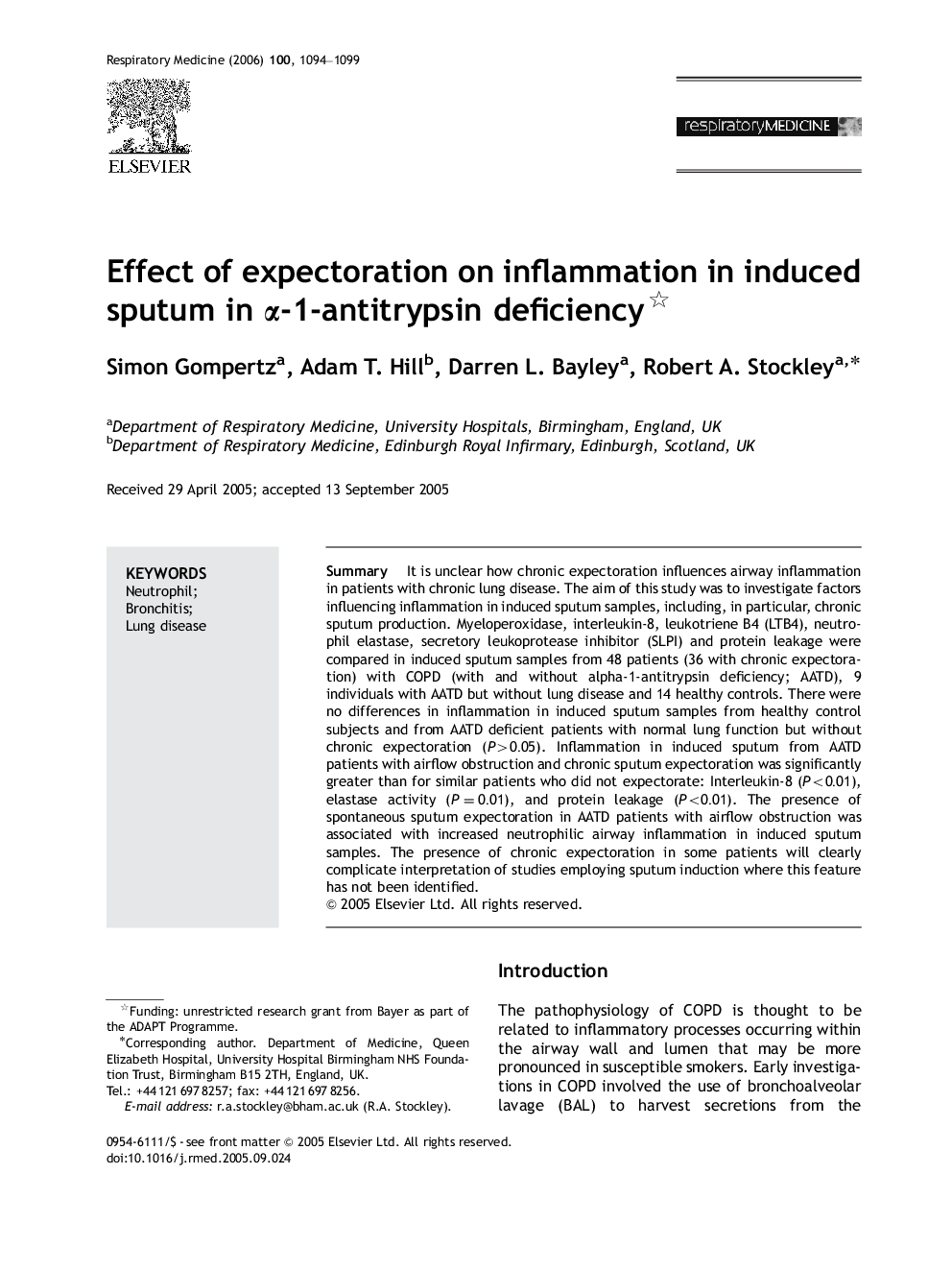| Article ID | Journal | Published Year | Pages | File Type |
|---|---|---|---|---|
| 4212103 | Respiratory Medicine | 2006 | 6 Pages |
SummaryIt is unclear how chronic expectoration influences airway inflammation in patients with chronic lung disease. The aim of this study was to investigate factors influencing inflammation in induced sputum samples, including, in particular, chronic sputum production. Myeloperoxidase, interleukin-8, leukotriene B4 (LTB4), neutrophil elastase, secretory leukoprotease inhibitor (SLPI) and protein leakage were compared in induced sputum samples from 48 patients (36 with chronic expectoration) with COPD (with and without alpha-1-antitrypsin deficiency; AATD), 9 individuals with AATD but without lung disease and 14 healthy controls. There were no differences in inflammation in induced sputum samples from healthy control subjects and from AATD deficient patients with normal lung function but without chronic expectoration (P>0.05P>0.05). Inflammation in induced sputum from AATD patients with airflow obstruction and chronic sputum expectoration was significantly greater than for similar patients who did not expectorate: Interleukin-8 (P<0.01P<0.01), elastase activity (P=0.01P=0.01), and protein leakage (P<0.01P<0.01). The presence of spontaneous sputum expectoration in AATD patients with airflow obstruction was associated with increased neutrophilic airway inflammation in induced sputum samples. The presence of chronic expectoration in some patients will clearly complicate interpretation of studies employing sputum induction where this feature has not been identified.
